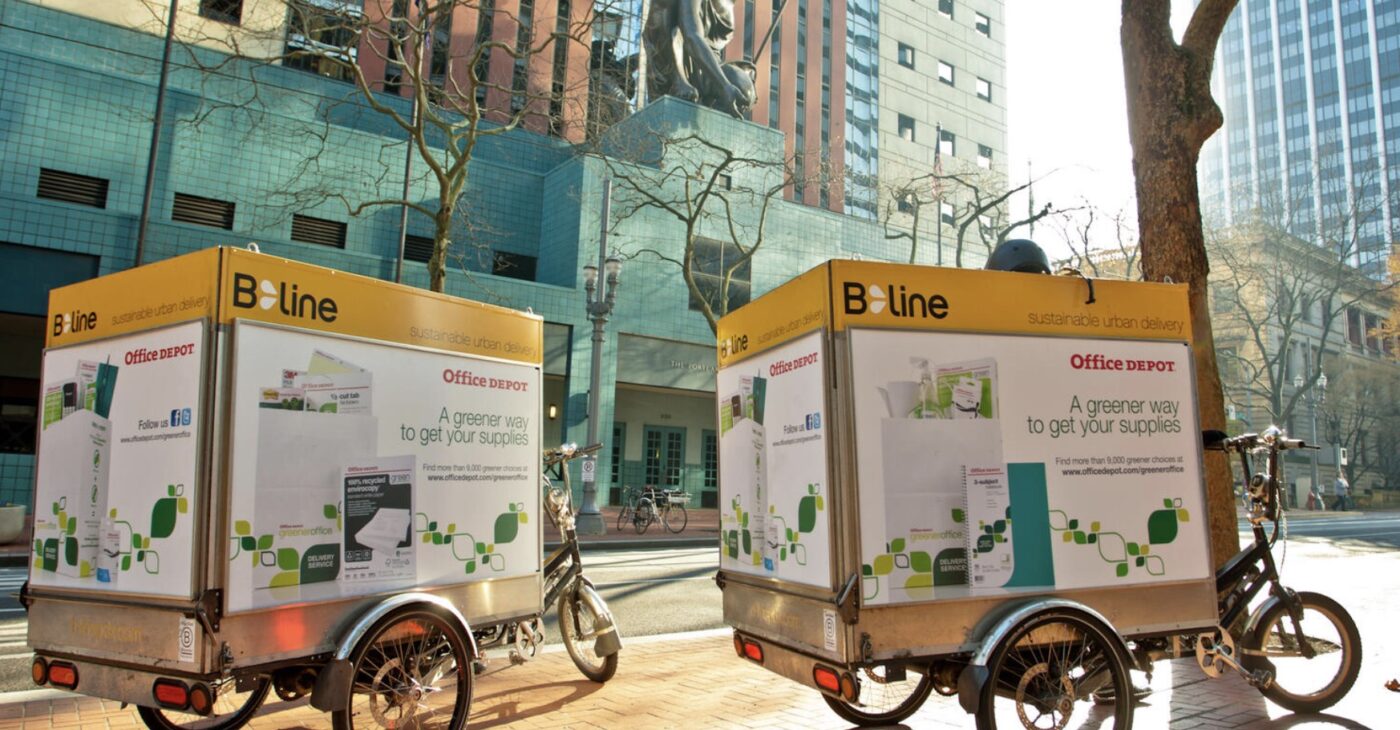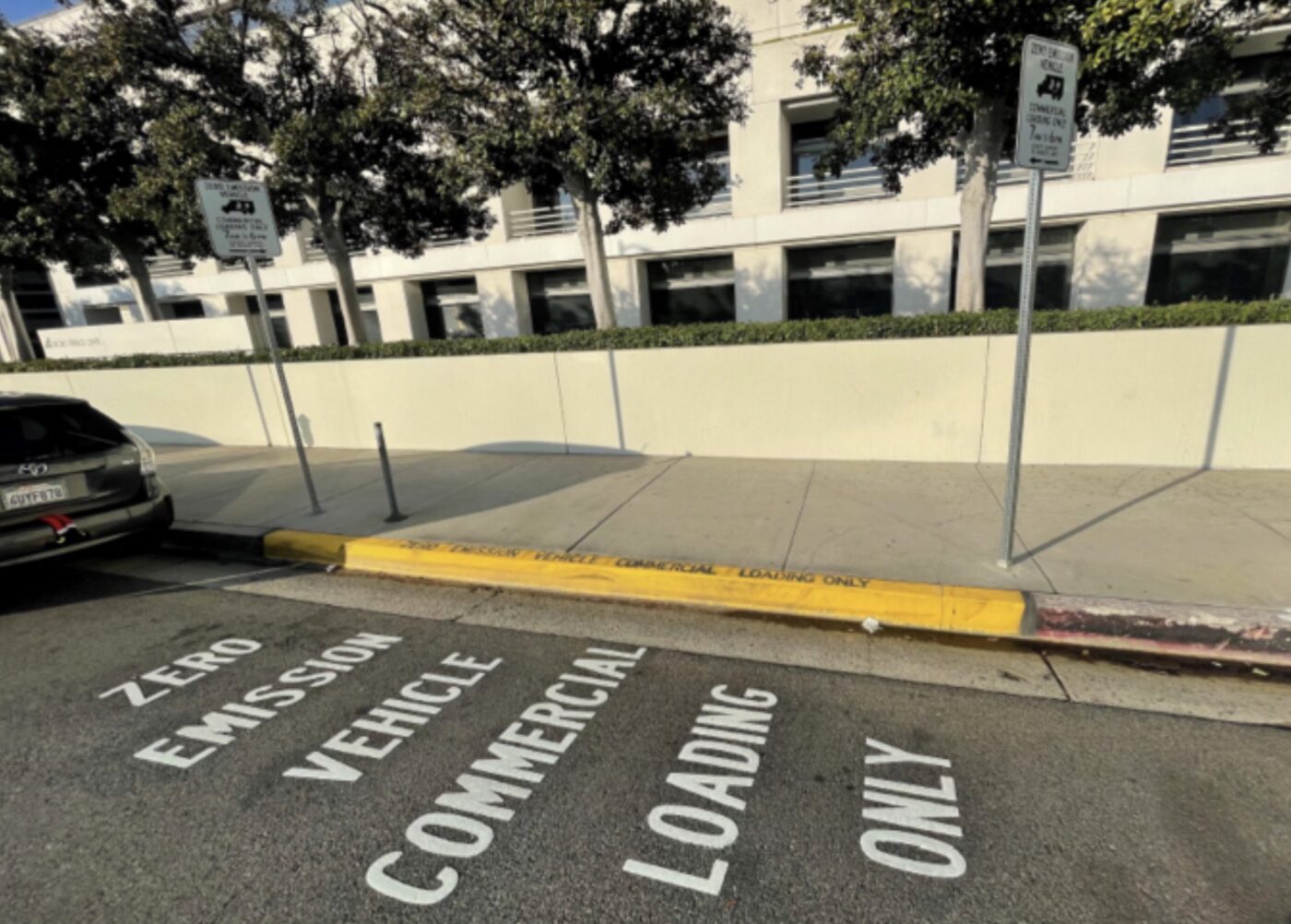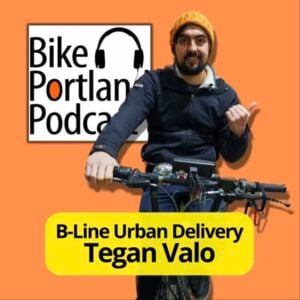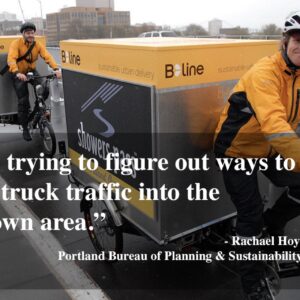The Portland Bureau of Transportation has won a $2 million federal grant to pilot a “zero emission delivery zone.”
The funding comes from the US Department of Transportation’s Strengthening Mobility and Revolutionizing Transportation (SMART) grants program. On a newly published webpage about the program, PBOT says the demonstration project will start this summer. “This funding will allow PBOT to change some truck loading zones into ‘zero-emission vehicles only’ loading zones within a proposed project zone that spans 25 acres of downtown Portland. This area is anchored by public institutions, including city, county, and federal offices—all of which have strong commitments to taking climate action.”
The program will be modeled after a similar pilot in Los Angeles.
In addition to these special loading zones, PBOT says they are working to “incentivize the movement of ‘clean goods’ through using an existing hub where big delivery trucks can transfer goods to smaller zero-emission vehicles – such as local fleets of electric-assist cargo trikes or electric vehicles— for deliveries into the pilot zone.”
Another key element of the project will be the use of cameras and sensor technology to regulate and monitor the new loading zones. “This includes data from logistics companies, sensors, and third-party analytics companies,” PBOT says.
Portland already has one of the country’s leading zero-emission freight delivery companies in B Line Urban Delivery. The company operates out of a distribution and fleet hub off SE 7th Avenue in the Central Eastside. We suspect that company will play a large role in this demonstration project, and we are working to find out more details.
This program will also dovetail nicely with the City of Portland’s other initiatives to reduce emissions of last-mile deliveries. In 2021 we reported on the Bureau of Planning & Sustainability’s effort to establish “cargo delivery hubs.” And just last month we shared how PBOT’s 2040 Freight Master Plan calls for a pilot program that would boost the use of cargo bikes for urban freight delivery.
There will be a launch announcement on Wednesday, April 26th outside the Portland Building on SW 4th Avenue. USDOT officials will be on hand with PBOT staff and PBOT Commissioner Mingus Mapps.
The project is set to launch this summer and will run for 18 months. If it goes well, PBOT will apply for another SMART grant to continue and expand the program to other parts of the city.









Thanks for reading.
BikePortland has served this community with independent community journalism since 2005. We rely on subscriptions from readers like you to survive. Your financial support is vital in keeping this valuable resource alive and well.
Please subscribe today to strengthen and expand our work.
This is nice but I wish we could spend the $2 million on preventing store break ins. Losing retailers (like REI and others) from the city is a huge negative impact on our carbon reduction goals.
I now will have to drive to the suburbs. So will thousands of other Portlanders
Thanks for covering this. Freight and how it moves is one of those overlooked users of our transportation system by urbanist advocates. Logistics is hard and most people don’t think too hard about how it works. Freight interests have developed a huge influence over our DOTs. If something like this could proof profitable and practical, it could really add some momentum to people first urban transformation.
Also bikes moving stuff is cool.